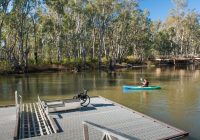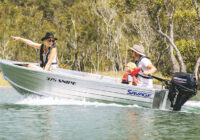Advanced Navigation, a global leader in AI robotics and navigation technology, has been awarded a grant by the Australian Department of Defence to advance the nation’s sovereign manufacturing capability for photonic chips.
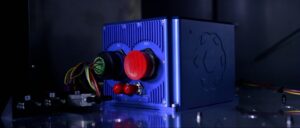
Advanced Navigation’s Boreas D90 inertial navigation system
Currently, Australia does not have commercial manufacturing capability for photonic chips. Advanced Navigation is the first and only company to produce this technology in the country. The company plans to manufacture 45,000 photonic chips per year.
Advanced Navigation CEO and co-founder, Xavier Orr, said, “The technological breakthroughs enabled by photonic chips offer new opportunities for defence and commercial applications requiring always available, ultra-high accuracy, orientation and navigation, including subsea, marine, robotics, aerospace and space.
Advanced Navigation is honoured to be a major driver of this capability, and empower technologies to safeguard national security in a time defined by technological warfare and geopolitical uncertainty.”
As part of the Sovereign Industrial Capability Priority grant, the Department of Defence has awarded Advanced Navigation $306,631 AUD (approx. $200,000 USD).
The award, one of several received by Advanced Navigation, further underscores and validates the earned trust between the Department and Advanced Navigation’s capability to deliver innovative solutions addressing the sector’s most critical and emerging needs.
Navigating New Frontiers With Photonics
Advanced Navigation uses photonic chips in its fibre-optic gyroscopes (FOG) inertial navigation systems (INS). These systems are recognised by global defence forces as a critical capability for Assured Positioning, Navigation and Timing (A-PNT) across navy, army and air force to enable autonomous capability, accurate positioning and high value asset tracking.
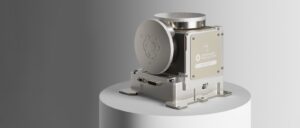
Advanced Navigation’s space-qualified Boreas X90 inertial navigation system
Advanced Navigation is one of only four companies in the world to manufacture strategic-grade FOG components, and the only in the world to develop a completely digital FOG (DFOG).
While FOG offers highly accurate position and navigation data, Advanced Navigation’s patented DFOG combines closed-loop FOG with digital modulation techniques and a revolutionary photonic chip to offer higher performance, delivering a 40 per cent reduction in size, weight, power and cost over comparable products, as seen in its Boreas range.
Specifically, the Boreas X90 will be utilised by Australian satellite manufacturer Space Machines onboard its Orbital Servicing Vehicle, scheduled to be launched off the SpaceX Falcon 9 rocket in early 2024. The technology will be critical for the vehicle’s navigation and docking in orbit.
Achieving Manufacturing Scale With Automation and Vertical Integration
Advanced Navigation has adopted a vertical integration framework, encompassing various stages of the photonics and DFOG INS system development, from design to quality testing to automated manufacturing. This streamlines processes, improves quality control, and ensures agility in adapting to evolving threats.
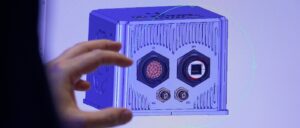
Advanced Navigation’s Boreas D90 inertial navigation system
In the context of A-PNT, precision and reliability are non-negotiable. Utilising machine learning, Advanced Navigation’s automated manufacturing process delivers components that function in the most challenging conditions, from subsea to space.
Specifically, advanced quality control mechanisms, such as real-time monitoring and machine vision, can detect defects at the early stage of production. This ensures only components meeting the highest standards are integrated into the navigation system, enhancing overall reliability, quality and longevity.
Advanced Navigation’s mission is to be the catalyst of the autonomy revolution. Powered by a deep curiosity to apply ground-breaking technologies to uncover and explore new frontiers, the company is ultimately extending human capabilities to build a more resilient and sustainable future, with safer outcomes.





